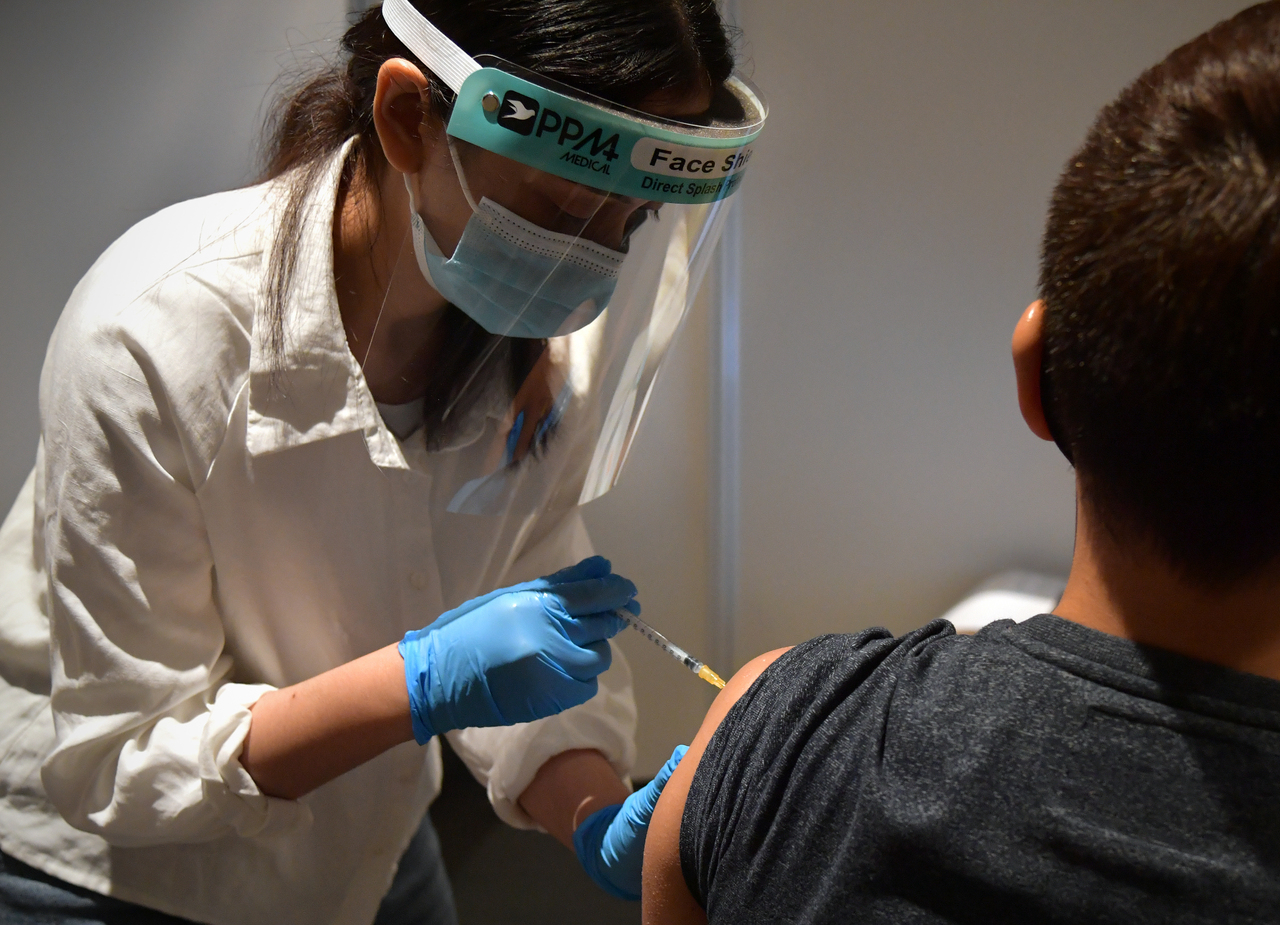No plans to require second Covid-19 booster shot in Singapore: Kenneth Mak
Sign up now: Get ST's newsletters delivered to your inbox

The Health Ministry recommends a booster dose about five months after the primary course of the Pfizer or Moderna mRNA vaccines.
PHOTO: ST FILE
Follow topic:
SINGAPORE - Some countries are moving towards offering their citizens a second booster shoot, or a fourth dose of a Covid-19 vaccine, but there are no plans to do so here yet, said Singapore's director of medical services Kenneth Mak.
The authorities have looked at the available evidence on the protection offered by vaccines - including the initial two-dose regime and subsequent booster shots - as well as the rate of infection among those who are vaccinated, he told a press conference on Wednesday (Feb 16).
Associate Professor Mak said it is still premature to speculate about whether and when additional booster shots will be needed. He added that additional booster doses are not considered necessary at this time.
"We still are in the midst of encouraging more people to complete the booster vaccinations as they become eligible, and it will take a little bit more time before we come to a need to review that decision on whether to offer our public another booster," he said.
"At this time, we are also monitoring whether or not there will be an emergence of a new variant… These variants, based on their inherent characteristics, may require us to augment and enhance the protection that we currently have from vaccines and booster vaccination jabs."
As of Monday (Feb 14), people in Singapore are no longer considered fully vaccinated if they do not get a booster shot 270 days or nine months after the second dose of their primary vaccination course.
The Health Ministry recommends a booster dose about five months after the primary course of the Pfizer or Moderna mRNA vaccines.
Those who have completed the three-dose course of the Sinovac-CoronaVac and Sinopharm vaccines are encouraged to get a booster shot after three months, due to lower antibody levels generated by these vaccines.
Studies in several countries, including Singapore, show that protection against infection in most vaccinated people wanes after two to three months. But protection against severe disease and death has been observed to last longer.
A recent study by the United States’ Centres for Disease Control and Prevention (CDC) found that booster shots of the Pfizer and Moderna mRNA vaccines lose some effectiveness against moderate and severe illness after about four months.
But it also emphasised that a third dose of an mRNA vaccine continues to offer “high levels of protection against severe disease, even months after administration”.
The CDC study found that vaccines were 91 per cent effective in keeping a vaccinated patient from requiring hospitalisation during a two-month period after getting a booster shot, but protection fell to 78 per cent after four months.
Health Minister Ong Ye Kung noted that the question of whether further booster shots are necessary is still a matter of debate among scientists studying the coronavirus.
He said it may not be necessary to develop variant-specific vaccines if future variants continue to be like Omicron, which is more transmissible but less severe compared with previous variants of concern.
"If you go towards the direction of Delta, meaning that you get a new variant that is actually more virulent, more destructive, then you may have to look at variant-specific vaccination to protect against infection," he said.
"These are still questions that you have to answer, so as of now, we don't have active plans to administer a second booster."

